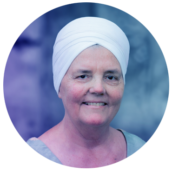
What will you learn in this course?
- Gain the knowledge and skills necessary to safely support parents-to-be in having the most empowering and trauma free conception, pregnancy, birth, postpartum and early parenting experience possible
- Recognize when your client is accessing early perinatal trauma, and gain the skills to support them in moving through and integrating these implicit traumas
- Find out how your own unconscious implicit prenatal, birth and early childhood experiences has impacted and continues to influence your inner experience, relationships, parenting, and other areas of your life
- Integrate your early perinatal trauma so you can be more present and prevent passing it on to your clients, your children, and others
Watch our last Live Information Session held on January 8, 2026
Why this training?
Many years of research in the field of perinatal psychology show a direct correlation between the way we were born and the subconscious behavioural and emotional patterns in our adult lives. Our early imprints stay with us for the rest of our lives. What we experienced in taking our first breath, continues at some level in every breath we take.

Since these experiences are implicit (not in conscious awareness), they are even more powerfully influential than the experiences we do remember. Our body remembers everything that we experienced even when we don’t consciously remember, and those memories create a filter through which we experience ourselves, our relationships, and the world around us.
With the knowledge that all mothers/parents are doing the best they can with the trauma they carry and the resources and support they have available, this information on how trauma is passed on, is not meant to trigger maternal/parental guilt. Instead our intention is to advocate for the awareness and support that is so needed by pregnant and birthing women and people, so we can change this cycle. Fathers/partners also deserve the support for their journey into parenthood. Families can only thrive in a community of support and connection.
It is essential to realize that during pregnancy and birth there is no separation between the fetus and newborn and their mother/parent. What the mother/parent experiences is what the infant experiences. This is when the mother’s/parent’s unintegrated trauma, including transgenerational trauma, is sensed and taken in by the newborn.
By becoming aware of and healing these early experiences, we have the potential to stop the reenactment of pain from being handed down to the next generation. We become empowered to stop the inheritance of trauma. Here lies the possibility for profound improvement in one’s self-esteem, self-compassion, ability to relate lovingly with oneself and others, to parent our children with attuned connection, to be creative, freely expressing from our essence, and to live a life filled with joy, health, creativity, and fulfillment.
For professionals who serve as providers of support for pregnant and birthing women and people, including midwives, doulas, physicians, obstetricians and educators, this knowledge supports us in holding an empowering space for people to trust in their innate ability to birth, bond, and nurture their child. An individual who is supported in trusting their innate ability to birth and nurture their child is better able to connect with the intuitive wisdom of their body. They are much less likely to experience postpartum depression. Birth becomes a doorway of initiation, an empowering journey of transformation into motherhood/parenthood.
Course Structure:
Weeks 1 to 4: Introduction to Compassionate Inquiry
The first four weeks of the training are an introduction to Compassionate Inquiry. You will have access to the short course content to learn about the CI approach with an introduction and orientation:
- Week 1: Live 2-hour call Introduction & Orientation to the Compassionate Inquiry Short Course
- Week 2: Live 2-hour call Introduction & Orientation to the Compassionate Inquiry Short Course
- Week 3: Live 2-hour call Introduction & Orientation to the Compassionate Inquiry Short Course
- Week 4: Live 2-hour call Introduction & Orientation to the Compassionate Inquiry Short Course
Weeks 5 to 28: Perinatal Training:
From weeks 5 to 28, you will learn how to apply CI into the perinatal period through The Portal Training Modules:
- Week 5-6: Module 1: Pre and Perinatal Trauma with 2-hour live call & triad practice
- Week 7-8: Module 2: Exploring the Impact of Your Own Birth with 2-hour live call & triad practice
- Week 9-10: Module 3: Presence, Safety, and Attunement in the Primal Period with 2-hour live call & triad practice
- Week 11-12: Module 4: Recognizing Triggers and Signs of Trauma in the Primal Period with 2-hour live call & triad practice
- Week 13-14: Module 5: Honouring Feelings during Pregnancy and Birth with 2-hour live call & triad practice
- Week 15-16: Module 6: Working with Memories, Stories, and Beliefs in the Primal Period with 2-hour live call & triad practice
- Week 17-18: Module 7: Acknowledging the Baby’s Experience: Children, Family, Responsibility with 2-hour live call & triad practice
- Week 19-20: Module 8: When Things Don’t Go as Expected with 2-hour live call & triad practice
- Week 21-22: Module 9: Birth (and Parenthood) as a Teacher with 2-hour live call & triad practice
- Week 23-24: Module 10: Becoming a Family: Establishing Connection with 2-hour live call & triad practice
- Week 25-26: Module 11: Birth Belongs to Women, People, Families with 2-hour live call & triad practice
- Week 27-28: Module 12: Integration with 2-hour live call & triad practice
Course Outline and Objectives:
Module 1: Pre and Perinatal Trauma
- OBJECTIVES:
- Introduction to the primal period trauma, birth imprints, implicit memory
- Understand a birth imprint
- Know and accept your own birth story
- Ensure participants support themselves while working with their birth imprint
- SKILLS TO DEVELOP:
- Notice when your own birth imprint is activated
- Acknowledge the feelings that arise during the exploration of your birth imprint
Module 2: Exploring the Impact of Your Own Birth
- OBJECTIVES:
- Introduce birth imprinting, recognizing its impact on the individual’s life
- Explore and acknowledge our own birth imprints and how these have affected our lives, an experiential exploration
- Ensure participants support themselves while working with their birth imprint
- SKILLS TO DEVELOP:
- Notice when your own birth imprint is activated
- Acknowledge the feelings that arise during the exploration of your birth imprint
Module 3: Presence, Safety, and Attunement in the Primal Period
- OBJECTIVES:
- Identify individual needs during pregnancy, birth, postpartum
- Ensure participants support birthing women and people in a present, attuned and safe way
- Recognise health in pregnancy, birth and postpartum
- Ensure participants support themselves within a traumatizing environment
- SKILLS TO DEVELOP:
- CI Short Course material for module 1 ‘Presence, Safety, and Attunement’
- Skill #1: Create safety with your birthing client
- Skill #2: Attune to the birthing woman/person, their partner, and their child (born or unborn)
- Skill #3: Invite openness
- Quality: Empathetic Abiding Presence
- CI Short Course material for module 1 ‘Presence, Safety, and Attunement’
Module 4: Recognizing Triggers and Signs of Trauma in the Primal Period
- OBJECTIVES:
- Learn and recognize signs of trauma and how to allow the healing process for women/people and their partners in preparation for parenthood
- Uncover clients’ previous trauma and its effects in the perinatal period experience
- Enable participants to work with perinatal trauma imprints and potential impact for clients in pregnancy, birth and postpartum
- Become skilled to work with people who have a history of sexual abuse, including medical abuse
- Recognize when you are triggered (as professional in your working environment) and being able to acknowledge it
- Create and maintain a self-regulation practice
- SKILLS TO DEVELOP:
- CI Short Course material for module 2 ‘Triggers, Pain, Shame’
- Skill #4: Encourage authentic feeling
- Skill #5: Give lots of space
- Skill #6: Acknowledge being triggered
- Quality: Self-awareness
- CI Short Course material for module 2 ‘Triggers, Pain, Shame’
Module 5: Honoring Feelings during Pregnancy and Birth
- OBJECTIVES:
- Understand conscious and unconscious conception
- Become aware of all feelings of your (pre)pregnant clients and giving them space
- Understand the importance of bonding between the mother/parent, partner and their baby
- Recognise the father / partner’s role in preconception and pregnancy
- SKILLS TO DEVELOP:
- CI Short Course material for module 3 ‘Trauma, Disconnection, Constriction’
- Skill #7: Listen to the voice, verbal language and speech patterns
- Skill #8: Notice body language and breathing patterns
- Skill #9: Notice defense mechanisms
- Skill #10: Acknowledge the client; validate
- Quality: Trust your gut feelings
- CI Short Course material for module 3 ‘Trauma, Disconnection, Constriction’
Module 6: Working with Memories, Stories, and Beliefs in the Primal Period
- OBJECTIVES:
- Become skilled in supporting a client in preparation for birth
- Identify unconscious beliefs and explore their origins
- Explore beliefs around birth and how they impact parenting choices
- Learn how to explore the client’s previous birth experiences, their own birth and how it’s impacting their choices
- Develop the ability to support clients in creating a healthy birthing environment
- SKILLS TO DEVELOP:
- CI Short Course material for module 4 ‘Attachment, Adaptation, Addiction’
- Skill #11: Recognize who is talking
- Skill #12: Clarify
- Skill #13: Mirror
- Qualities: Authenticity, Curiosity
- CI Short Course material for module 4 ‘Attachment, Adaptation, Addiction’
Module 7: Acknowledging the Baby’s Experience: Children, Family, Responsibility
- OBJECTIVES:
- Become skilled at creating a safe therapeutic container so the client can experience growth and be attuned, cultivate presence, and bonding with the unborn and newborn child
- Recognise the baby’s experience from pre-conception
- Become skilled of recognising early development trauma, understanding attachment theory and early bonding
- Recognise birth imprints in babies
- Understand the impact of medical interventions and early separations later in life
- SKILLS TO DEVELOP:
- CI Short Course material module 5 ‘Children, Family and Responsibility’
- Skill #14: Use appropriate self-disclosure
- Skill #15: Interrupt the client’s story
- Quality: Confidence
- CI Short Course material module 5 ‘Children, Family and Responsibility’
Module 8: When Things Don’t Go as Expected
- OBJECTIVES:
- Become skilled at creating a safe container for prenatal/birthing/postpartum clients with difficulties:
- Fertility issues
- Perinatal loss
- Preterm births
- High-risk pregnancy (with diseases, mental health, etc.)
- Hospital transfers
- Overmedicalised birth/Obstetric violence
- NICU admission
- Lactation difficulties
- Depression/suicide
- Supporting grief
- Become skilled at creating a safe container for prenatal/birthing/postpartum clients with difficulties:
- SKILLS TO DEVELOP:
- CI Short Course material for module 6 ‘Memories, Stories, Belief’
- Skill #16: Pay attention to your body and your reactions
- Skill #17: Identify unconscious beliefs and explore their origin
- Skill #18: Use appropriate teaching stories and quotes
- Qualities: Non-judgement, acceptance
- CI Short Course material for module 6 ‘Memories, Stories, Belief’
Module 9: Birth (and Parenthood) as a Teacher
- OBJECTIVES:
- Understand the impact of critical incidents/unexpected outcomes on yourself as a care provider (facilitated debriefs, peer support, self-care)
- Becoming skilled at providing a safe container to integrate clients’ birth experience (debrief after birth)
- SKILLS TO DEVELOP:
- Holding space for the client’s story
- CI Short Course material for module 7 ‘Will, Compassion, Forgiveness’
- Skill #19: Practice self-compassion and self-care
- Quality: Compassion
Module 10: Becoming a Family: Establishing Connection
- OBJECTIVES
- Practice CI skills for:
- supporting the family after birth
- supporting parents to build, bolster and repair their relationship
- recognizing clients’ triggers related to their own past infant traumas, so as not to project the same traumas onto their child
- supporting the mom/primary parent during the postpartum period – lactation/infant feeding, support, rest.
- Practice CI skills for:
- SKILLS TO DEVELOP:
- Refine your ability to attune to the client.
- CI Short Course material for module 8 ‘Relationship, Possibility, Change’:
- Skill #20 Be playful
- Skill #21 Give the client a taste of victory
- Skill #22 Express gratitude
- Quality: Playfulness
Module 11: Birth Belongs to Women, People, Families
- OBJECTIVES:
- Cultivate trust for the process
- Recognise primal period wisdom across cultures
- Being able to hold birth stories sharing circle as an opportunity to integrate
- Believe that change is possible
- SKILLS TO DEVELOP:
- Trust the process
- Give birth back to women/people
- Understand the Compassionate Inquiry approach, and begin to practice, using the skills, qualities and Stepping Stones.
Module 12: Integration
- OBJECTIVES:
- Facilitate a compassionate working place
- Practice compassionate, trauma-informed perinatal care
- SKILLS TO DEVELOP:
- Practice compassionate perinatal care for you and your clients
- Practice daily self-care.
What is Included?
See in detail what this course includes:
- Over 100 hours of teaching videos & transcripts from the Compassionate Inquiry Short Course and The Portal training including 16 interviews with top experts,
- Sixteen 2-hour online live sessions to review the modules, answer to your questions and skill-building practice,
- Approximately 10 hours of reading material and home practice,
- Twelve 60-90 minute biweekly dyad/triad practices,
- Access to a monthly 75 minute facilitated mentoring group to discuss client cases, ask questions, and connect with the CI Portal community. After the training completes, you will have the option of continuing in the group with a yearly membership for a nominal fee.
A minimum of 4 hours a week engaging with the material and practice is required to complete the course.
Video recordings of live interviews with Laura and Hannah Betty and guest speakers in the field of perinatal health, trauma, and its healing:
The Culture of Birth with Dr. Gabor Maté
Applied Neuroplasticity, Birth Trauma, Practical Somatic Tools for Healing with Annie Brook
Herbs and Plant Medicine in the Birthing Environment with Beth Ebers
Becoming Us, a Relationship-Based Approach to Pregnancy, Birth and Beyond with Elly Taylor
The Nurture Revolution with Greer Kirshenbaum
Honoring Rites of Passage in a Woman’s Life with Jane Hardwicke Collings
Baby Therapy: Listening to the Language of the Newborn with Karlton Terry
Indigenous Midwifery Wisdom with Katsi Cook
Midwifery Continuity of Care with Lia Brigante
Caring for Black and Brown Bodied People with Mars Lord
Traditional Birthkeeper Wisdom with Nicola Goodall
Compassionate Inquiry, Epigenetics, Intergenerational Trauma, Yoga, and Nutrition for Nurturing Birth with Sat Dharam Kaur
Identity Development Method as a Pathway of Perinatal Trauma Integration with Stephen Gyllenhaal
The Sacred Perinatal Period with William Emerson
Plus:
Embodied Trauma-Informed Perinatal Care with Nkem Ndefo & Gabor
Oxytocin and The Importance of Gentle Birth to Prevent Trauma and Promote Health with Sarah Buckley & Gabor
Course Creators and Facilitators:

Laura Latina is an independent midwife with over 15 years experience, an international speaker, and a Certified Compassionate Inquiry Practitioner. She has worked with Médecins Sans Frontières (MSF) as a manager of maternity hospitals in Malawi, South Sudan, Kenya, Afghanistan and many more, leading international projects to promote a culture of gentle, respectful births and parenthood.
Laura has been a community midwife, a midwifery team leader and consultant at the NHS in the UK; and Women’s Health Advisor for the MSF Medical Unit. After traveling the globe supporting more than 2000 women in 4 different continents, she learned that birth is a sacred rite of passage that needs to be respected. She supports women to come back to themselves and their innate ability of being loving, attuned mothers. Laura is passionate about assisting births at home creating a supportive environment for families.

Hannah Betty Idarius practiced as a homebirth midwife for 30 years In British Columbia, Arizona, and California. She specialized in waterbirth, classical homeopathy, rebirthing breathwork, prenatal and perinatal trauma healing, and somatic coaching. With a focus on empowering women to trust in their innate ability to birth and parent wisely, Hannah dedicated herself to fostering an experience of birth that was gentle, supportive, and honoring of the sacred. She was one of the pioneers of waterbirth in the U.S. and is the author of The Homeopathic Childbirth Manual: A Practical Guide for Labor, Birth, and the Immediate Postpartum Period.
Hannah practices as a Certified Compassionate Inquiry Practitioner and Somatic Coach, supporting individuals and couples to embody optimal mental, physical, and emotional health and wholeness.
Who is this professional training course for?
The Portal is open to all health professionals working in the birthing field who want to gain skills for compassionately supporting pregnant, birthing, and postpartum women, people, and their partners (with prior Compassionate Inquiry training or not)
- Midwives, nurses, doctors
- Doulas
- Birth educators/keepers/workers
- Lactation consultants
- Early parenting educators
- Perinatal therapists
- Perinatal and birthing coaches
- Prenatal and postnatal bodyworkers
Any professional (with prior Compassionate Inquiry training or not) who wants to
- Recognize when their client is accesing early trauma
- Know how to create safety while supporting them in moving through and integrating their perinatal trauma
- Gain skills for compassionately supporting health in pregnant, birthing and postpartum women, people and their partners
Compassionate Inquiry participants (short course, circles, experience, suicide attention)
Graduated and certified Compassionate Inquiry Practitioners
“During gestation, birth and early childhood, the limbic system registers all of our sensations and feelings, without translating it into the language of the cortex, simply because the cortex is not developed yet. That memory lives in the body throughout the rest of our life. What seems like a reaction to some present circumstance is, in fact, a reliving of past emotional experience. This subtle but pervasive process in the body, brain, and nervous system has been called implicit memory, as compared to the explicit memory apparatus that recalls events, facts, and circumstances. According to the psychologist and memory researcher Daniel Schacter, implicit memory is active ‘when people are influenced by past experience without any awareness that they are remembering.… If we are unaware that something is influencing our behavior, there is little we can do to understand or counteract it. The subtle, virtually undetectable nature of implicit memory is one reason it can have powerful effects on our mental lives.“
~ Gabor Maté, In the Realm of Hungry Ghosts: Close Encounters with Addiction

What our past participants say…
Course Fees
Regular Price
$2500 CAD
2 Monthly Payments
$1350 CAD
3 Monthly Payments
$900 CAD
4 Monthly Payments
$675 CAD
To convert to your local currency, click here.
See dates for the April 2026 cohort:

Laura’s group dates:
Starts Wednesday, April 8, 2026 at 3am ET.
Weeks 1-4 : Weekly calls beginning at 3am ET, Wednesday.
April 8, 15, 22, 29
Weeks 5-28: Biweekly calls at 3am ET, Wednesday.
May 13, 27
June 10, 24
July 8, 22
August 5, 19
September 2, 16, 30
October 14

Hannah’s group dates:
Starts Thursday, April 9, 2026 at 1pm ET.
Weeks 1-4 : Weekly calls beginning at 1pm ET, Thursday.
April 9, 16, 23, 30
Weeks 5-28: Biweekly calls at 1pm ET, Thursday.
May 14, 28
June 11, 25
July 9, 23
August 6, 20
September 3, 17
October 1, 15
Applications for the April 2026 Cohort
The Portal April 2026 cohort training runs from April 8, 2026 to October 15, 2026.
The Portal is a Compassionate Inquiry® based, comprehensive and experiential 28-week trauma-informed training for health professionals who serve as providers of support for pregnant and birthing women, people, and their partners. The Portal Training was designed so that Compassionate Inquiry® can be more accessible to health professionals working in the field of prenatal and perinatal health and trauma. Though you will gain a foundational level of learning and experience with Compassionate Inquiry, it is not a substitute for the intensive Compassionate Inquiry Professional Training.
The application is to confirm your eligibility.
Regular Applications
Regular Applications are open until Sunday, March 1, 2026; at midnight ET. You will receive a notice if you have been accepted a few days after submitting your application. Final registration and payment are due Sunday, March 22.
Subsidy Applications
A limited number of subsidies are available for THE PORTAL: Bringing Trauma-informed Care to the Prenatal, Birth and Perinatal Experience
Please only apply for a subsidy if you:
- Would be unable to attend the program otherwise, due to financial constraint
- Are committed and capable of attending the program you are applying for
- Can pay the discounted rate for the course by the required date, March 8, 2026.
- Subsidies are not transferable from one course to another, or from one person to another
Subsidy applications are due by midnight ET until Sunday, February 22, 2026. You will be notified if you have been chosen to receive a subsidy a few days after the application deadline. Final registration and payment of the subsidy are due by Sunday, March 8, 2026.
Please email [email protected] for subsidy application form.
You may be eligible for a discount, if you:
• are a present or past participant of Compassionate Inquiry® Professional Training ($350 CAD discount)
• have completed the Compassionate Inquiry® Facilitated Short Course ($100 CAD discount)
• are a returning participant in the Compassionate Inquiry® The Portal Training ($1500 CAD discount)
If you think you are eligible for a discount, please email [email protected] for the discount code.
Please apply for a discount if you can pay the discounted rate for the course by the required date, in one payment.
Creators of Compassionate Inquiry®:

Dr. Gabor Maté is a retired physician, bestselling author, an internationally renowned speaker and the creator of the Compassionate Inquiry approach to psychotherapy.
Gabor evolved this therapeutic approach over 20 years of his personal journey, and from his work with patients in family practice, palliative care, and addiction. He developed his system further while facilitating integration workshops focused on healing trauma through the use of psychedelics.

Sat Dharam Kaur N.D. has supported Dr. Gabor Maté in structuring the Compassionate Inquiry approach and developing the online training.
Sat Dharam is a naturopathic doctor, teacher and author, who combines naturopathic medicine with Compassionate Inquiry, yoga, breathing practices and meditation to support others in healing and integrating mind, body and spirit.
FAQ
Training Pathways
Facilitated Course: For anyone wanting to develop the skills, tools, and insights to understand and unravel their own birth story and early trauma imprints, applying the Compassionate Inquiry approach and other somatic based modalities. For birth workers/professionals (midwives, doulas, doctors, birth educators, and other professionals who work with people in the fertility, conception, pregnancy, birth and postpartum period) to develop awareness, skills, and tools to build a trauma-informed therapeutic relationship in support of the needs of this specific population.
Compassionate Inquiry® The Portal: Bringing Trauma-informed Care to the Prenatal, Birth and Perinatal Experience runs 2 cohorts each year, in April and September.
On request – specific training for maternity wards / birth centres / midwifery teams on trauma-informed care applying the CI approach. For further inquiries please contact: [email protected]
What are the Course Completion Requirements for The Portal: Perinatal Training?
In order to receive a Certificate of Course Completion, the following requirements must be
met:
- Attend at least 13 of the 16 two-hour biweekly live calls (80%); live calls are not
recorded. - Participants who arrive more than 20 minutes late or leave 20 minutes early will be
marked absent. - Participants who miss either: 1) 3 consecutive biweekly meetings, or 2) more than 3
meetings in total, will be asked to leave the facilitated biweekly meetings and triad
sessions, but can continue to view the online materials and attend the perinatal
focus group. This ensures that we maintain the integrity of the course for all
participants. Participants who miss more than 3 biweekly meetings in total, or 3
consecutive biweekly meetings, and still desire to participate in the program, may
continue attending the Biweekly meetings and dyad/triad practice sessions until the
end of the program, although they will not receive a Certificate of Completion. They
may register for the next cohort for a reduced fee of $1000, and repeat the program
the following year. - Participants must be attending regular dyad/triad sessions to attend the biweekly
meetings, and vice versa – if you are practicing in dyads/triads, you must attend the
biweeklies. You may not drop out of the biweekly and continue in dyads/triads
unless you have completed the training. - Complete at least 12 dyad/triad sessions (100%) during the duration of the course,
and submit your dyad/triad attendance form within one month of completion of the
training, by emailing it to [email protected]. - Complete the viewing of all of the online materials for the Short Course and The
Portal: study and practice guide material for each module, videos, conversations,
Powerpoints, multiple choices and feedback forms during the duration of the
program. - Completion of at least 5 Case Study forms, documenting individual sessions where
you were acting as the perinatal practitioner and demonstrating competence. At
least 2 of these Case Study forms must be with actual clients, who are not part of the
Compassionate Inquiry training. Case Studies should be submitted, typed in a
document, and saved as 1 file, with each case study starting at the top of a page. Use
initials rather than full names to protect your client’s identity and maintain
confidentiality. - Be observed as a ‘therapist’ by your online group members and given feedback by
your online facilitator and/or intern. - The course completion requirements must be submitted within the duration of the
training, or within a 3-month extension period, to receive a Certificate of
Completion. There is a $50 late fee for the 3 month extension. - Acknowledgement and signature on the Compassionate Inquiry Code of Ethics for
course participants - Completion of Feedback Forms for each module once, as well as the long Feedback
Form at the end of the course.
Certificate of Completion due date:
Your course completion requirements are due at the last date of your program. If they have not been received by then, you will not be eligible for a Certificate of Completion unless you apply for the extension period. If all course materials have been viewed, and you have attended at least 13 of the 16 live calls, and you have submitted 5 case study forms, and completed at least 12 dyad/triad sessions on time and submitted your attendance form, you will be issued a Certificate of Completion within 2 months of the last day of your program.
The Certificate of Completion will state that you have completed 28 hours of the Facilitated Compassionate Inquiry Short Course and 183 hours of the Facilitated Compassionate Inquiry Perinatal training ‘The Portal’. You may use this designation when describing your training. You may not call yourself ‘certified’ or a ‘Compassionate Inquiry Practitioner,’ as these designations refer to people who have completed The Compassionate Inquiry Professional Online Training and The Mentorship Program.
Cancellation Policy
This is an experiential program with a limited number of spaces available. Since a space is reserved for you when you register and pay, there are no refunds available for this course 14 days prior to the start date, and thereafter. No exceptions. If you request a refund 15 or more days before the start date, it will be granted, minus a $250 CAD admin fee. (To convert to your local currency, click here)
For all queries regarding billing and payments, please reach out to [email protected]
What Continuing Education (CE) Credits are available?
For Canadians, US-based and international participants:
Spiritual Competency Academy (30 CE):
The cost for those who would like to receive CE Credits in the US is $150 CAD. You will be given a link for this option when you finish the training.
If you are a mental health professional from outside of California, please check with your state licensing board or regulatory body as to whether or not they accept credits from the SCA, which is an approved sponsor of CE by the American Psychological Association.
- CE credits for psychologists are provided by the Spiritual Competency Academy (SCA) which is sponsoring this program. The Spiritual Competency Academy is approved by the American Psychological Association to sponsor continuing education for psychologists. Spiritual Competency Academy maintains responsibility for this program and its content.
- The California Board of Behavioral Sciences accepts CE credits for LCSW, LPCC, LEP, and LMFT license renewal for programs offered by sponsors of CE who are approved by the American Psychological Association.
- LCSW, LPCC, LEP and LMFTs, and other professionals from outside of California need to check with their state licensing board as to whether or not they accept credits from programs offered by approved sponsors of CE by the American Psychological Association.
- SCA is approved by the California Board of Registered Nursing (BRN Provider CEP16887) for licensed nurses in California. RNs must retain their certificate of attendance for 4 years after the course concludes. Nurses outside of California must confirm acceptance with their licensing boards.
- For questions about your certificate or the content, logistics, or other support issues regarding this course, please contact Michelle Soto at [email protected].
- For questions about whether APA CE is valid for you, contact your licensing board directly.
- For general questions about APA CE, contact SCA at [email protected].
